Opening up a blank spreadsheet can be intimidating. Where do you start?
Spreadsheet templates change everything. These easy-to-use tools save you time by providing a pre-built, totally customizable platform.
But not all templates are made equal — finding the right one for your objective is key to unlocking your team’s potential. In this article, we’ll take a closer look at the various spreadsheet templates that can improve collaboration, oversight, and overall productivity. Plus, we’ll get you acquainted with a monday.com spreadsheet template.
What is a spreadsheet template?
A spreadsheet is an online document that efficiently stores data in a table, arranging it into neat columns and rows. Once you have your information in a spreadsheet, you can store and organize even the most complex data into formats that are easy to analyze.
But without a proper template, knowing where to begin drawing up a spreadsheet can often feel confusing and overwhelming — especially when it comes to numbers, graphs, or charts. That’s where customizable templates come in handy.
Most people think of Google Sheets or Microsoft Excel templates when they think of spreadsheet templates, but those aren’t your only options. We may be biased, but we’re big fans of monday.com’s versatile spreadsheet templates. But more on than later.
5 reasons you should be using a spreadsheet template
Everyone from a CEO to a coffee shop manager can benefit from a well-designed spreadsheet template. Here are a few reasons:
- No training necessary
Spreadsheets are powerful tools that can do incredible things for storing and manipulating data … but only if you know how to use them. For example, you can masterfully break down data sets with little to no training with the proper spreadsheet templates.
This saves time and money by not training team members on how to manipulate Excel files. Instead, they can focus energy on getting the job done, not watching YouTube videos on how to build Microsoft Excel templates.
- Easy to use
Excel spreadsheet templates are so prevalent because of their intuitive, easy-to-use approach. You don’t have to understand complicated formulas with a spreadsheet template, as the formulas, formatting, and design are already integrated into the spreadsheet. This is particularly useful for accounting or financial documents, where complicated sums are necessary.
- Provides consistency
When team members use a template with the same formatting and formulas, spreadsheets naturally have a consistent structure and design. Add company branding, colors, and logo to the spreadsheet template, so all company documents are uniform and look professional.
- Saves time and energy
Building a new spreadsheet for each project wastes valuable human hours. Using Excel spreadsheet templates means skipping the exhaustive process of building formulas from scratch — jump straight in and fill in data. Whether categorizing a year’s worth of data, creating a budget plan, or managing a team of employees, a spreadsheet template cuts time significantly.
- Customizable to various needs
Spreadsheet templates come with a high level of customization — they aren’t set in stone. Instead, adjust and tweak formulas as needed to create a spreadsheet template that meets the team’s specific needs and preferences. This element of flexibility makes manipulating and analyzing the data much easier to do.
What are some examples of spreadsheet templates?
The most common reasons for using spreadsheet templates are data organization, analysis, and storage. But such broad terms translate to countless practical solutions that teams and individuals can benefit from.
Here are a few examples of spreadsheet templates in action.
Sales report spreadsheet template
In this example, a grocery store owner has sales data from 2018 to store and analyze. Using a basic template in Excel, they input the product names and quarterly sales from each product into the relevant columns.
This Excel spreadsheet includes the SUM function that automatically calculates the sum in each column. Once the data has been entered, the business owner can see the total sales made in each quarter.
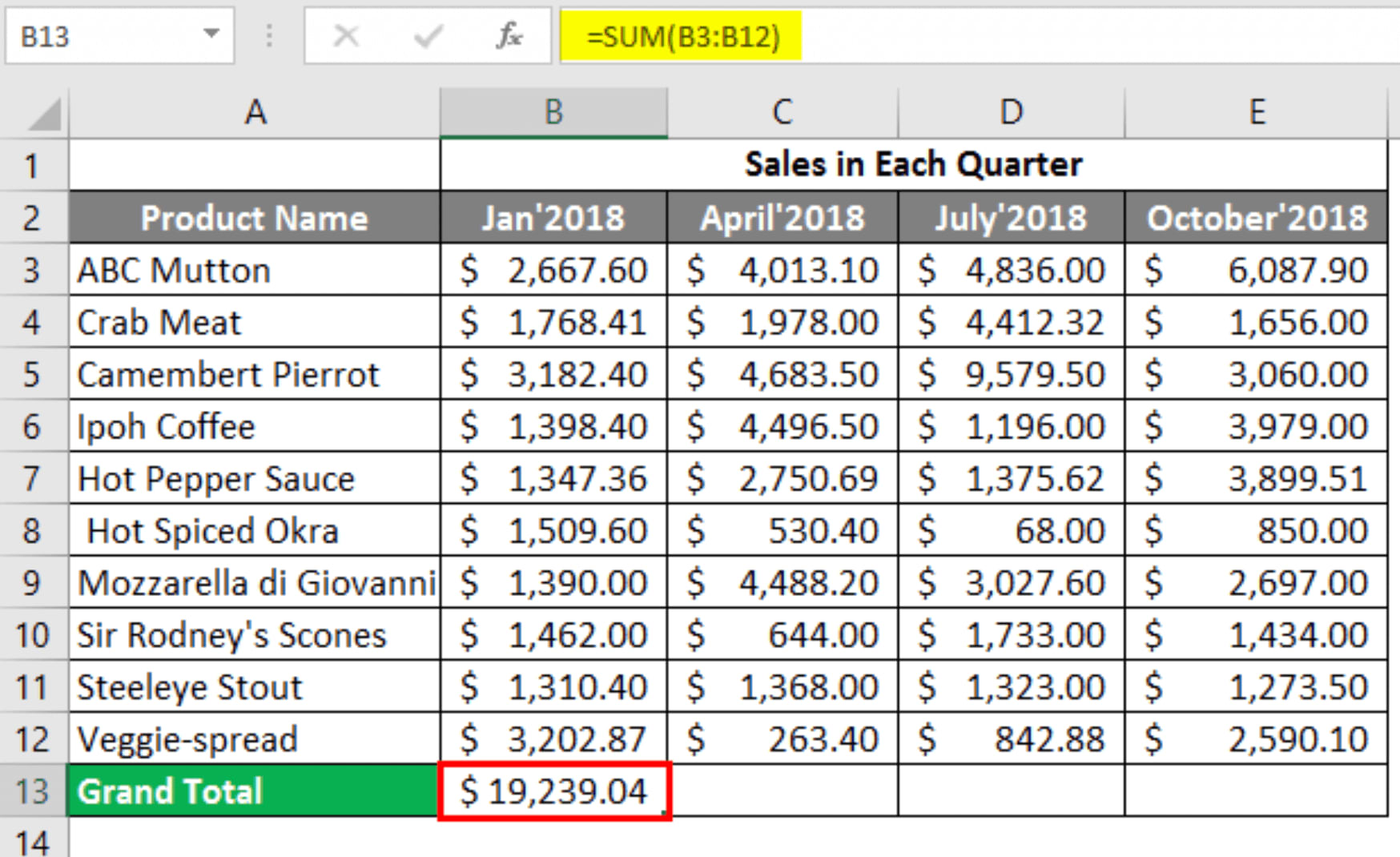
To make their sales data more attractive and easier to analyze, they turn their Excel file into a 3-D bar graph. From this graph template, they can compare the sales of each product in each quarter of 2018.
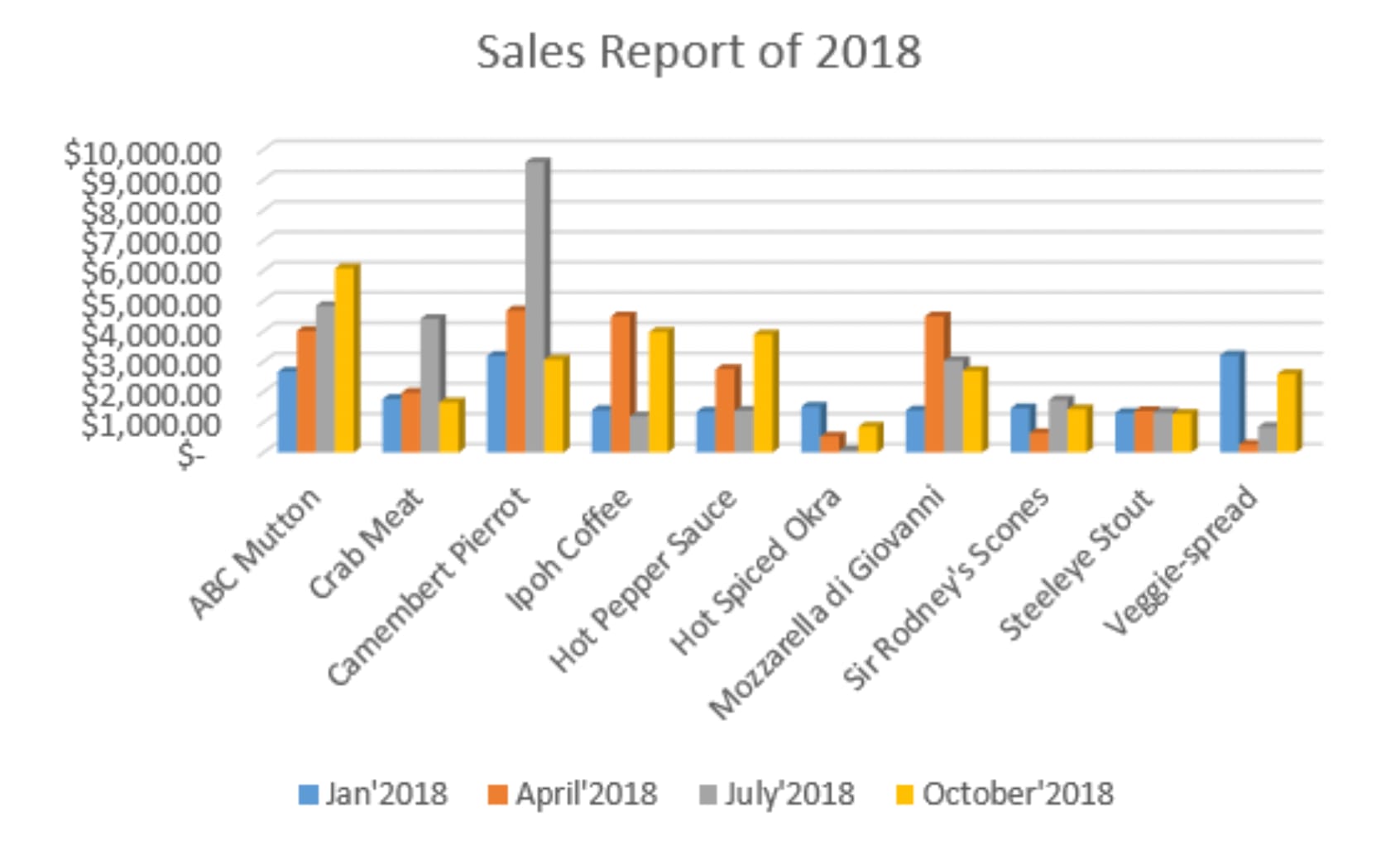
Personal budget spreadsheet template
Spreadsheets aren’t just for the workplace. For example, a personal budget spreadsheet can help you keep track of where your money is going each month. Tracking income and expenses makes it easier to save for the future and build financial security.
In the below example of a budget template in Excel, the spreadsheet template is broken down into income and expenses. Expenses are further categorized into housing, transportation, medical, utilities, and the frequency of each expense.
After inputting the data into the template, two graphs have been automatically created to represent the data visually. A pie chart shows where most of the income is spent, and a bar graph shows the difference between budgeted income and expenses.
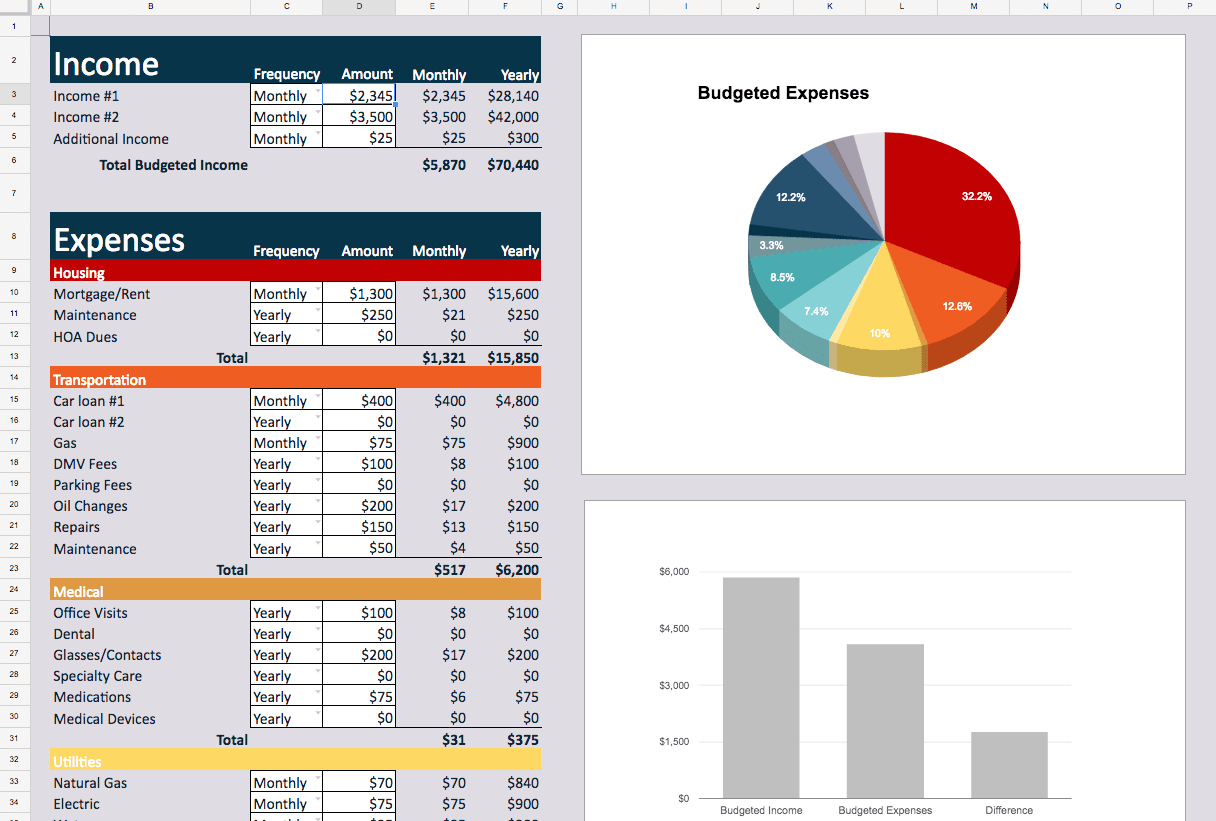
monday.com’s spreadsheet templates
monday.com offers a wide variety of spreadsheet templates that focus on different elements of business management.
With monday.com’s powerful Work OS, teams can centralize spreadsheets and data into one accessible platform. This makes collaboration and communication a breeze, no matter the physical location of teammates.
Transform your spreadsheets into colorful visual boards, calendars, timelines, and Gantt charts. Quickly drag-and-drop items to track, plan, and manage projects of every size for optimized productivity. The formulas embedded in monday.com’s spreadsheet templates allow teams to concentrate energy on moving forward rather than getting hung up on tedious data entry and management.
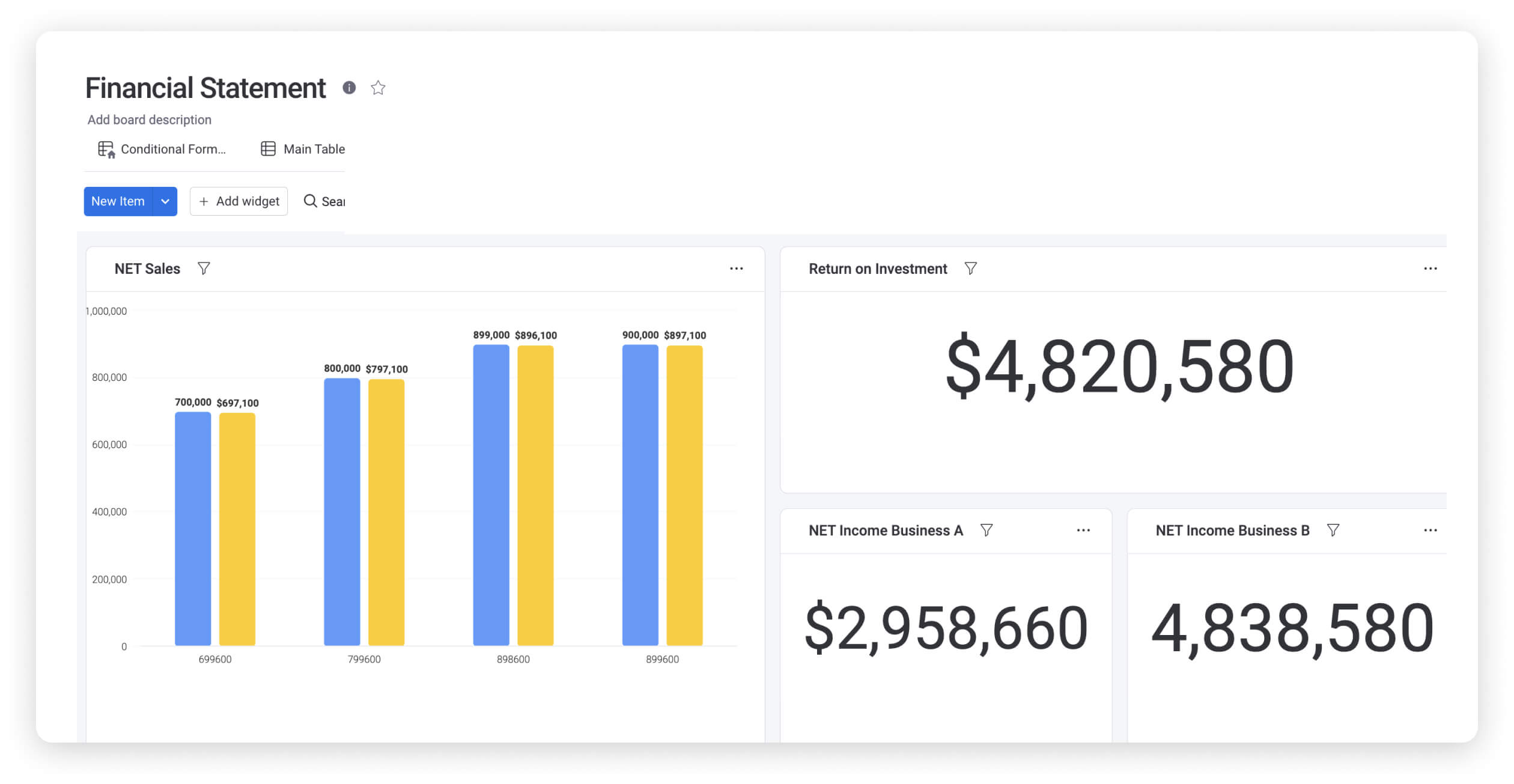
Do you prefer templates in Excel? Our spreadsheet templates are downloadable as Excel files. monday.com’s spreadsheets are fully integrated with Microsoft Excel, meaning you can import and export your data between both platforms.
With a wide range of customizable templates available, monday.com has a spreadsheet template for every person, team, and project.
Examples of monday.com spreadsheet templates
The sheer number of available templates is enough to make anyone’s head spin. So here are a few ways to use a spreadsheet template.
With a monday.com account, you can access a whole host of free templates that you can transform into whatever view suits you best.
Marketing budget template
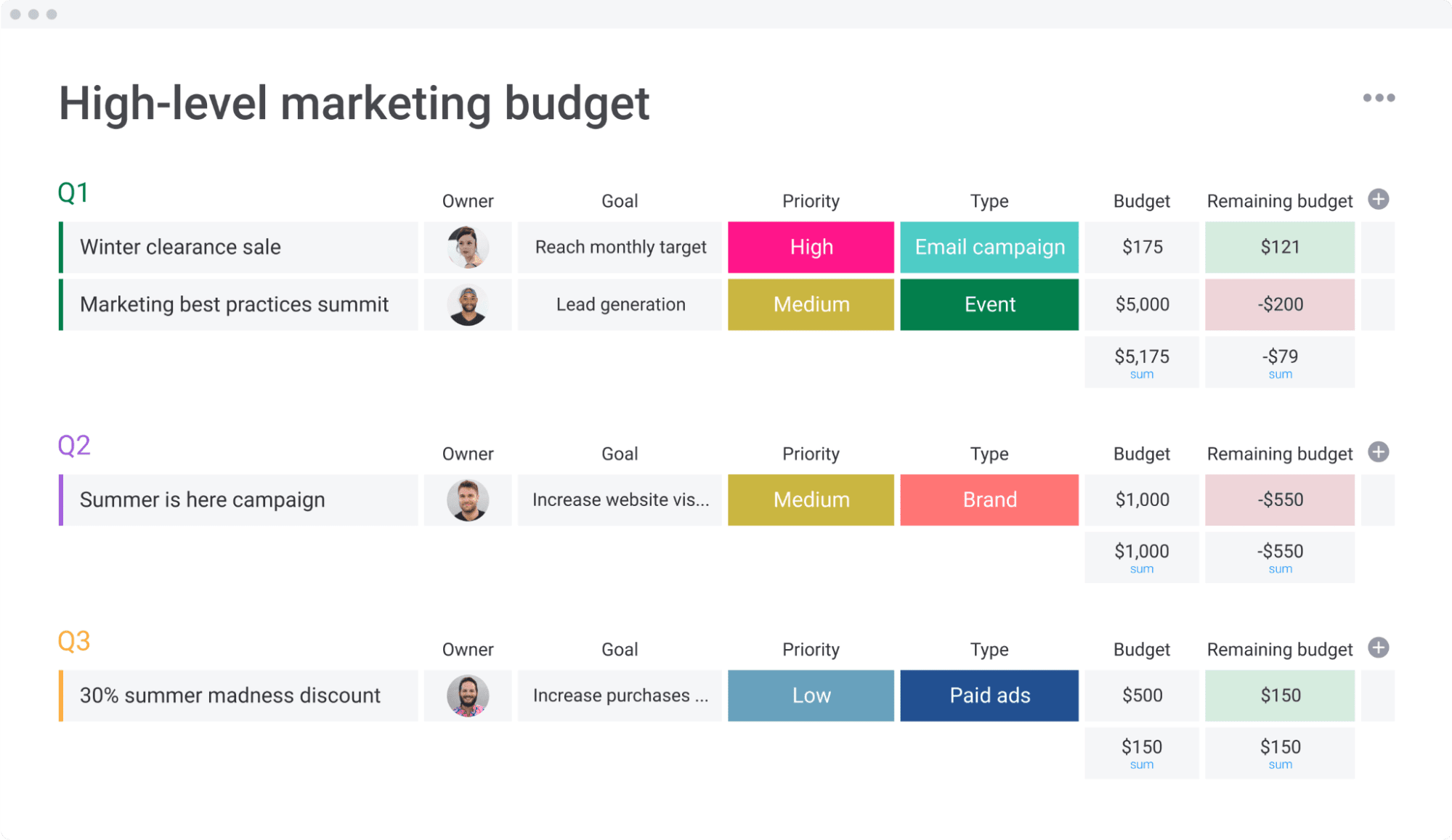
Track and manage all marketing costs and budget allocation throughout the year with a marketing budget template. Then, add revenue, monthly expenses, time estimations, and formulas to spreadsheets to get an instant overview of the marketing budget breakdown in one place.
Gantt chart templates
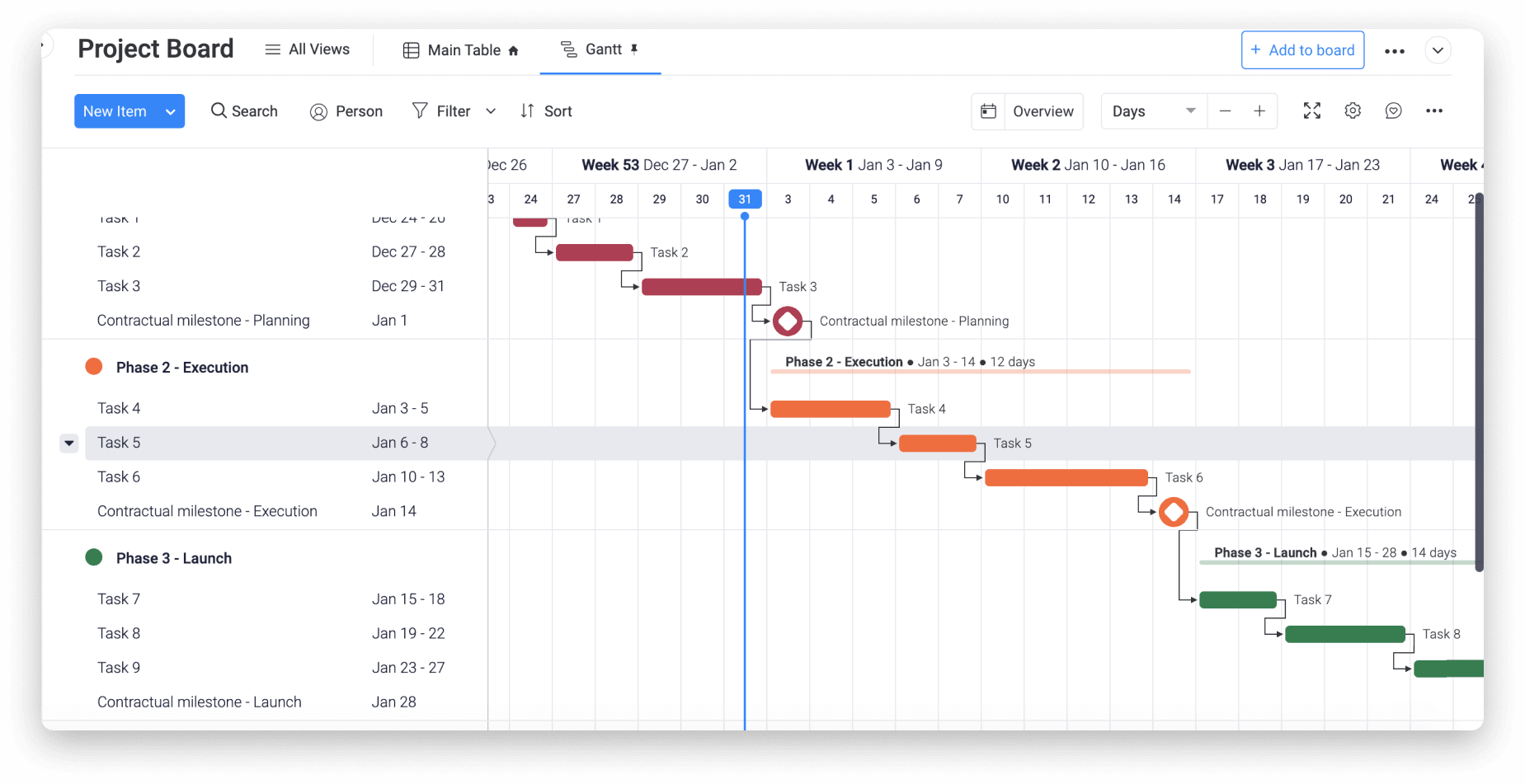
A Gantt chart is a great way to track progress and maintain a bird’s-eye view of a project schedule. With this popular way of visualizing projects, all team members can understand who is responsible for what tasks, the duration, and how tasks relate.
monday.com’s Gantt chart template means you can quickly transform CSV files into interactive Gantt charts to visually present, plan, and track projects.
Project tracker template
![]()
Project tracker spreadsheets provide invaluable insight into the many steps a team takes toward creating a successful project. Use it to add subtasks, dependencies, milestones, cost estimations, and more for improved team efficiency.
Inventory management template
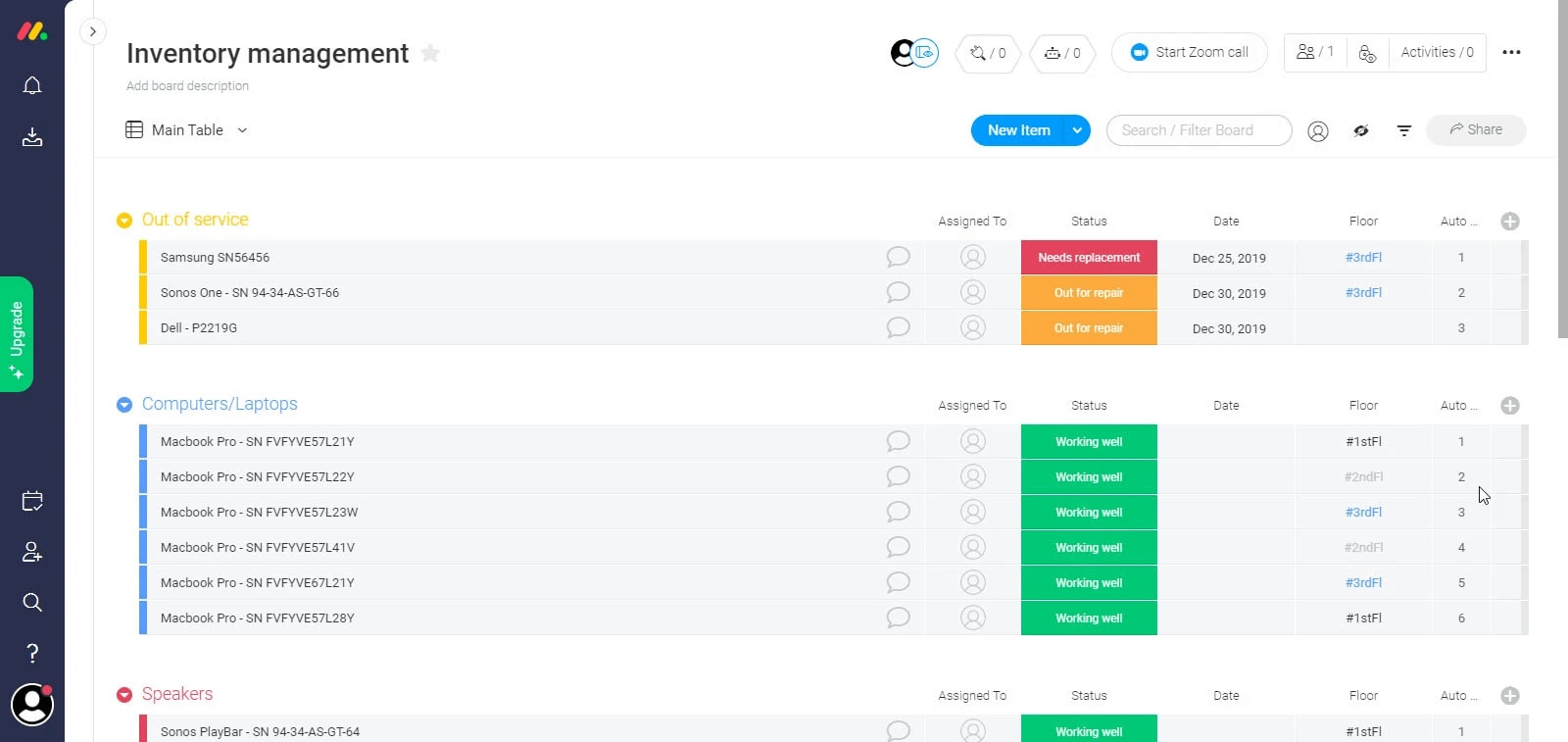
Any business that sells a product needs to take regular stock inventory, and an inventory management spreadsheet is the best way to do that. Use it to automate data entry, keep stock, and adjust quantities as you make sales.
To-do list template
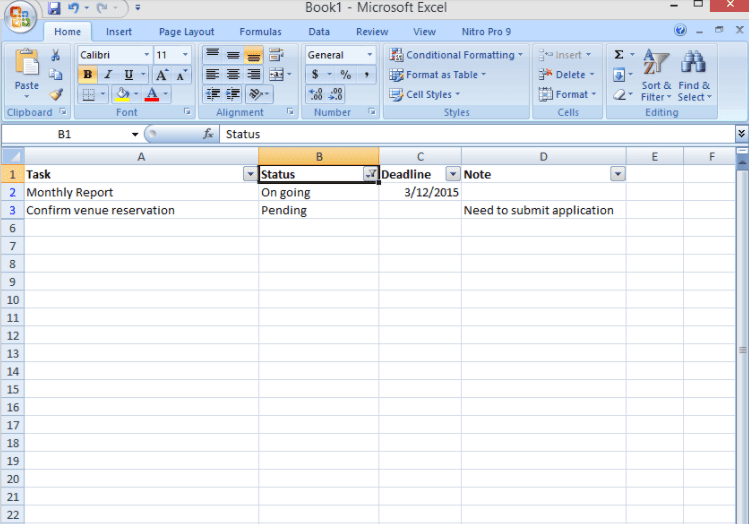
Everyone can benefit from a robust to-do list. A prioritized to-do list enables better task tracking and time allocation with improved accuracy, whether personal or professional. While you could use Excel’s Filter feature to create an editable, trackable list, monday.com’s to-do list template will help you stay on top of your tasks more easily.
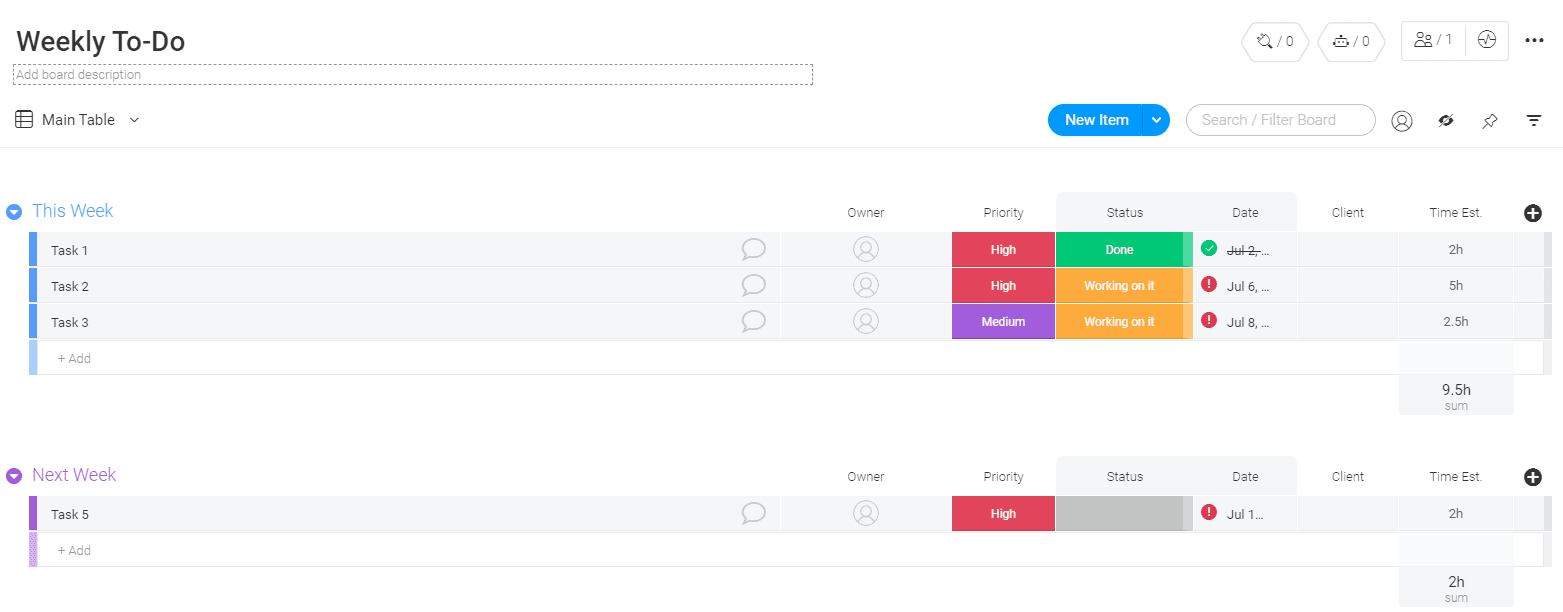
FAQs about spreadsheet templates
Where can I find spreadsheet templates?
You can find spreadsheet templates online at monday.com for various business and analytical uses. You can also browse templates within other platforms like Google Sheets or Excel.
What are templates in Excel?
Microsoft Excel is a program that facilitates the creation and management of spreadsheets, and templates are preformatted sheets that help you structure and visualize your data. When creating a new spreadsheet or looking for third-party templates online, you can browse templates.
How do I download Excel templates?
Excel spreadsheet templates are widely available on the internet, Microsoft Office’s official marketplace, and third-party sites. In addition, you can find a variety of great spreadsheet templates on monday.com and thousands more by doing a quick Google search.
How do I create a spreadsheet template?
Suppose you’ve created a spreadsheet that you like, you can save it as a template in Excel for future use. Simply click “Save As,” create a title for your template, and select Excel Template in the “Save As” type box options. If you’re looking for an easier way than creating the template from scratch, monday.com has many free templates that you can customize to your purpose and save or export as needed.

